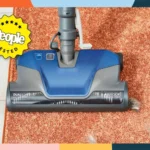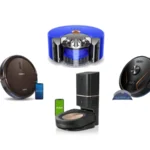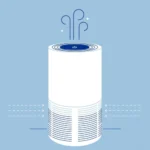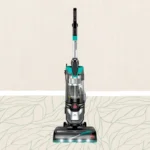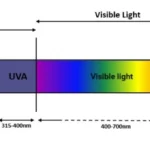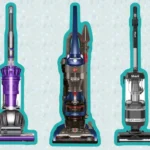As we strive to maintain a clean and healthy living space, smart vacuum cleaners have become a popular appliance in many households. One important feature to consider when purchasing a smart vacuum cleaner is its filtration system. With a wide range of filtration systems available, including High-Efficiency Particulate Air (HEPA) filters, cyclonic filtration systems, ultraviolet-C light filters, and multistage filtration systems, it can be perplexing to choose the right one. In this article, we will explore the different types of filtration systems in smart vacuum cleaners and their advantages and disadvantages. Additionally, we will provide a guide to help you select the best filtration system for your home environment.
What is Filtration System in Smart Vacuum Cleaners?
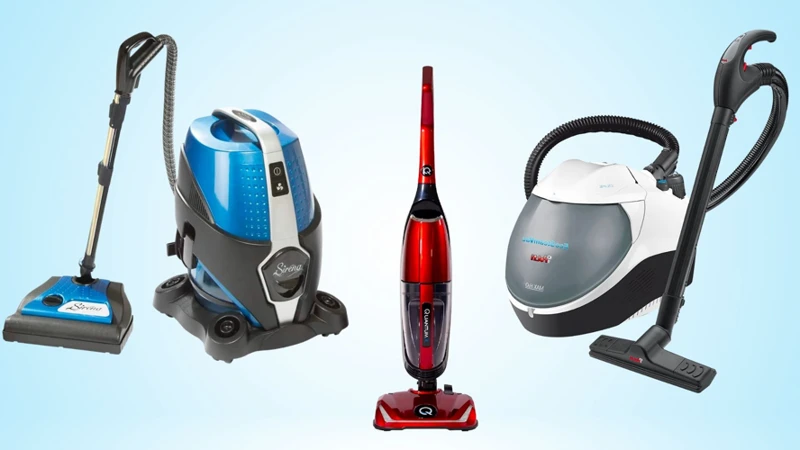
Smart vacuum cleaners have revolutionized the way we clean our homes. They are known for their ability to navigate through tight spaces, clean under furniture and detect dirt, debris, and pet hair. However, what sets smart vacuum cleaners apart from traditional vacuum cleaners is their advanced filtration system.
A filtration system in smart vacuum cleaners is a mechanism designed to remove small particles such as dust, pollen, and pet dander from the air as it passes through the vacuum cleaner. The system consists of one or more filters that trap particles and prevent them from being released back into the air. By doing this, it helps to remove allergens and other harmful pollutants from the air, improving the indoor air quality in your home.
Smart vacuum cleaners use different kinds of filtration systems to ensure efficient cleaning. Here are some types of filtration systems that smart vacuums use:
High-Efficiency Particulate Air (HEPA) Filters: HEPA filters are made of fine mesh that traps small particles such as dust, pollen, and pet dander. They are considered the gold standard in air filtration and can trap particles as small as 0.3 microns.
Cyclonic Filtration Systems: Cyclonic filtration systems work by using centrifugal force to separate particles from the air and trap them in a collection bin. This system is effective in removing large debris but not very efficient in removing small particles.
Ultraviolet-C Light Filtration: Ultraviolet-C (UVC) light filtration systems use UV light to kill bacteria, viruses, and mold. These systems work by passing air through a chamber that exposes it to UV light, which then kills any harmful pathogens present in the air.
Multistage Filtration System: Multistage filtration systems involve a combination of different filters that work together to remove different types of particles from the air. These filters may include a pre-filter, a carbon filter, a HEPA filter, and an antimicrobial filter.
A good filtration system in a smart vacuum cleaner is crucial for maintaining a healthy indoor environment by removing harmful pollutants from the air. It also prevents the dust and allergens from being recirculated around your home. Additionally, it provides the user with an opportunity to breathe in fresh air and reduce the chances of allergies or illnesses.
If you’re interested in learning more about smart vacuum cleaners and the benefits of a good filtration system, check out our article on Smart Vacuum Filtration Benefits.
Importance of Filtration in a Vacuum Cleaner
When it comes to vacuum cleaners, the importance of filtration cannot be overlooked. Vacuum cleaners tend to suck up both the visible dust and invisible particles that can be harmful to our health. These tiny particles can cause a range of respiratory problems, especially for individuals suffering from allergies or asthma. The filtration system in a vacuum cleaner plays a crucial role in reducing the level of these harmful particles that are present in the air.
Filtration helps trap and contain the dirt and dust that the vacuum cleaner picks up, thus preventing it from being released back into the air we breathe. The trapped dust and dirt particles remain within the vacuum cleaner’s filtration system, ensuring that they do not pollute the indoor air quality. Having a good filtration system ensures that you can breathe clean and fresh air, even as you clean your home.
HEPA filters are known to provide exceptional filtration as they can capture up to 99.97% of airborne particles as small as 0.3 microns. Such filters are thus considered to be highly efficient in trapping dust and allergens. They are ideal for individuals suffering from respiratory problems, as they can alleviate some of the symptoms by reducing the number of allergens present in the air.
Vacuum cleaners that use cyclonic filtration systems are also highly efficient as they can capture even the smallest particles. These systems use cyclonic technology to trap the dirt and dust particles in a high-speed whirlwind. This way, the particles are separated from the air and trapped in the collection canister. This process makes cyclonic filtration systems highly efficient in capturing even the finest particles.
Some vacuum cleaners use ultraviolet-C light filtration, which helps to kill bacteria, viruses, and other germs present in the air. While these filters may not be as effective in capturing particles, they can significantly reduce the number of bacteria present in the air.
Having a multistage filtration system also aids in ensuring that the air quality remains high. This system comprises several filters, each designed to capture particular types of particles. The filters work in tandem to trap the dust, dirt, and allergens, ensuring that the air that gets expelled is clean and fresh.
To sum up, the filtration system in a vacuum cleaner is essential for maintaining a healthy indoor environment. It ensures the air is free from dust, allergens, bacteria, and other pollutants that could put our health at risk. We can further enhance the cleaning experience by choosing a vacuum cleaner with the right filtration system based on the nature of our home environment. You can learn about other important factors to consider in vacuum cleaners, such as noise level and how to reduce its impact by exploring related articles.
High-Efficiency Particulate Air (HEPA) Filters
HEPA filters are one of the most popular types of filtration systems in smart vacuum cleaners. HEPA stands for High-Efficiency Particulate Air filters, and they are designed to trap tiny particles of dust, pollen, pet dander, and other airborne pollutants that the naked eye cannot see. HEPA filters can effectively capture particles as small as 0.3 microns with an efficiency rate of up to 99.97%, making them a reliable option for individuals who suffer from allergies or asthma.
One of the benefits of HEPA filters is that they work effectively without releasing back particles into the air. This is why they are often recommended by doctors for people with respiratory problems. HEPA filters are composed of a dense mat of glass fibers that trap the particles, making them a reliable filtration option in reducing exposure to airborne pollutants.
Some smart vacuum cleaners have a lower noise level compared to other traditional vacuum cleaners. This is because HEPA filters work by using a fan to draw air through the filter. Most vacuum cleaners with HEPA filters come with sealed compartments to prevent pollutants from escaping back into the air. This design ensures that the vacuum cleaner removes harmful particles from the air while maintaining a quiet and peaceful surrounding.
Even though they are effective, HEPA filters need to be replaced every six months or so. This maintenance period may be more frequent in homes where the vacuum cleaner is used more frequently. The efficiency of HEPA filtration systems is essential since maintenance of the filter is usually more costly than other types of filters. One of the essential factors to consider when selecting a HEPA filter is the grade. Higher grade filters can capture more particles and usually have a more extended operating period.
HEPA filtration systems are a reliable filtration option for creating a healthy indoor environment. They have become increasingly popular in recent years due to their effectiveness in capturing harmful airborne particles. They are not only ideal for individuals with allergies or respiratory problems but also for general household cleaning purposes.
Cyclonic Filtration Systems
Cyclonic filtration systems are becoming increasingly popular in smart vacuum cleaners, and this is due to their outstanding performance. A cyclonic filtration system uses a vortex motion to separate dirt and dust from the air. Essentially, the system creates a high-speed rotating airflow, which forces the dust and debris towards the outer walls of the dustbin. Then, the filtered air is released back into the room.
One of the key benefits of using a cyclonic filtration system in a smart vacuum cleaner is that it is highly effective in trapping and containing even the smallest particles. This is important because it ensures that the air released by the vacuum cleaner is clean and free of harmful allergens that can cause respiratory problems.
Additionally, a cyclonic filtration system has no bags, which need to be replaced regularly. Instead, it has a dustbin that can be easily emptied when full. This makes it a more cost-effective solution for those who want to save money on vacuum cleaner maintenance.
When considering a cyclonic filtration system in a smart vacuum cleaner, it’s important to note that there are several types of cyclonic filtration systems available on the market. Some of the more advanced systems use a multi-cyclonic filtration process to provide even higher levels of filtration performance. Others may include special filters, such as pre-filters or post-filters, to further improve the air quality.
A cyclonic filtration system is an excellent option for those who are looking for a powerful and reliable filtration system in their smart vacuum cleaner. With its ability to trap even the smallest particles and to be easily maintained, it can make a significant improvement to the indoor air quality of any home.
Ultraviolet-C Light Filtration
One of the most innovative types of filtration systems that has become increasingly popular in smart vacuum cleaners is the ultraviolet-C (UV-C) light filtration.
What is UV-C Light Filtration?
UV-C light filtration is a special type of filtration system that functions by exposing air to ultraviolet light. This process uses short-wavelength ultraviolet light to destroy harmful bacteria, viruses, and other microorganisms present in the air.
How does UV-C Light Filtration work?
UV-C light filtration works by using a specialized UV-C lamp that emits ultraviolet light at a wavelength of 254 nanometers (nm). This wavelength is known to be highly effective in destroying the DNA and RNA of bacteria and viruses, making them unable to replicate and spread.
As air passes through the UV-C lamp, any harmful bacteria and viruses that are present are exposed to the intense UV-C light, which kills them instantly. This type of filtration system is highly effective in purifying the air and preventing the spread of germs and other harmful microorganisms.
Advantages of UV-C Light Filtration
One of the most significant advantages of UV-C light filtration is that it is highly effective in destroying a wide range of harmful microorganisms, including viruses and bacteria. This makes it an ideal filtration system for individuals who are prone to allergies and respiratory issues.
Additionally, UV-C light filtration is chemical-free and environmentally friendly, making it an excellent alternative to traditional chemical-based air purification systems.
Disadvantages of UV-C Light Filtration
One of the primary disadvantages of UV-C light filtration is that it can only purify the air that passes through the UV-C lamp. This means that it is not effective in removing particulate matter such as dust, pollen, and pet hair from the air.
UV-C light filtration systems can be relatively expensive when compared to other types of filtration systems, making them less accessible to individuals who are on a tight budget.
Conclusion
UV-C light filtration is an innovative and highly effective type of filtration system that is increasingly being incorporated into smart vacuum cleaners. While it may have some disadvantages, the advantages of UV-C light filtration, including its ability to destroy harmful microorganisms and its chemical-free and environmentally-friendly nature, make it a highly desirable option for individuals looking to create a healthy and clean indoor environment.
Multistage Filtration System
If you’re looking for a superior filtration system in a smart vacuum cleaner, you may want to consider a multistage filtration system. Unlike a single-stage filtration system, where the air passes through just one filter, a multistage filtration system contains several filters in a series.
Typically a multistage filtration system will start with a pre-filter that captures larger particles like dust and hair. Next, the air will pass through a HEPA filter which traps smaller particles like dust mites, pollen, and pet dander. Some multistage filtration systems may also have a carbon filter that helps to remove odors and volatile organic compounds (VOCs) from the air.
One of the advantages of a multistage filtration system is that it provides comprehensive filtration, capturing a wide range of airborne contaminants. Additionally, because there are several filters in the system, each filter can be designed for a specific purpose. For example, some multistage filtration systems have an electrostatic filter that attracts and captures particles with an electrostatic charge.
Another benefit of a multistage filtration system is that it can prolong the life of your vacuum cleaner. By capturing more particles with the pre-filter and other filters, there will be less build-up on the vacuum’s motor and other mechanical parts. You won’t have to clean or change the filters as frequently, saving you time and money.
When considering a multistage filtration system in a smart vacuum cleaner, it is essential to check the number of filters included, as well as the type of filter used. Some multistage filtration systems may have more filters than others, but not all filters may be necessary or effective for your home’s needs. Additionally, some multistage filtration systems can be more challenging to maintain than others, so you’ll want to consider the maintenance requirements as well.
A multistage filtration system is an excellent option for those looking for the most comprehensive and effective filtration system in a smart vacuum cleaner. With its ability to capture various types of airborne particles and prolong the life of your vacuum cleaner, it is a wise investment for any household.
How to Select a Filtration System in a Smart Vacuum Cleaner?
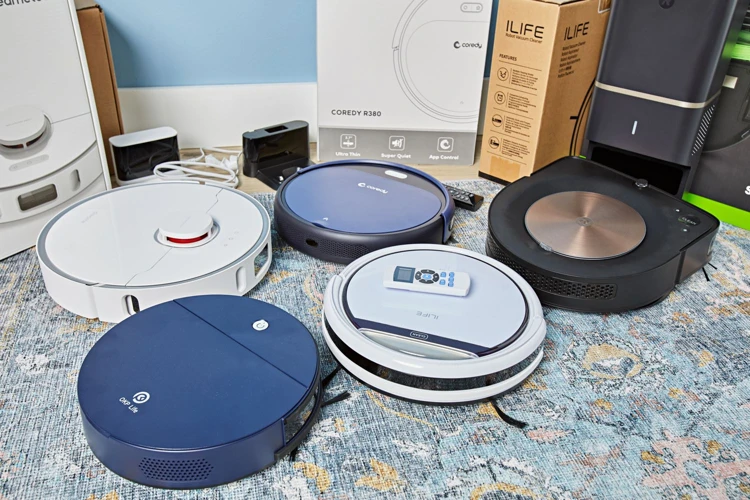
When it comes to selecting a filtration system in a smart vacuum cleaner, there are a few important factors to consider. Let’s take a look at some of the key things to keep in mind during the buying process.
Determine the Type of Filtration System You Need: There are several types of filtration systems available in smart vacuum cleaners, including HEPA, cyclonic, ultraviolet-C light, and multistage filtration. Each has its own unique features and advantages. Determine which type will work best for you based on factors like the size of your home, the number of occupants, and the types of surfaces you’ll be cleaning.
Consider Your Home Environment: The environment of your home plays a major role in determining the effectiveness of your vacuum’s filtration system. If you have pets, for example, you may need a system that can handle pet dander and hair. Those with allergies may require a system that can filter out smaller particles like pollen and dust mites. Think about the air quality of your home and the issues you’re trying to address with a new vacuum cleaner.
Check the Filtration Efficiency: Filtration efficiency is a measure of how well a filtration system captures harmful particles. Look for a smart vacuum cleaner with a high filtration efficiency rating to ensure that you’re getting the best possible protection against harmful allergens and pollutants.
Look for Special Features: Some smart vacuum cleaners come with additional features like air sensors that monitor and adjust filtration levels based on air quality, or zone cleaning that allows you to target specific areas of your home more efficiently. Take a closer look at these special features to determine if they’re worth the extra investment.
Check the Maintenance Requirements: Finally, consider the maintenance requirements of your new vacuum cleaner. Some filtration systems require more maintenance than others, so be sure to read the manufacturer’s instructions carefully. A good rule of thumb is to look for a system that’s relatively easy to clean and maintain, as this will help ensure that your vacuum cleaner continues to run smoothly for years to come.
By taking into account factors like filtration type, home environment, filtration efficiency, special features, and maintenance requirements, you’ll be well on your way to selecting a high-quality filtration system for your smart vacuum cleaner.
Determine the Type of Filtration System You Need
When it comes to selecting a filtration system in a smart vacuum cleaner, the first step is to determine the type of filtration system you need. There are different types of filtration systems available, and each has its benefits and drawbacks. It is essential to understand your requirements before making a purchase.
HEPA filters are an excellent choice if you have allergies or asthma. These filters are designed to capture small particles like pet dander, dust mites, and pollen, making them ideal for people who want to breathe clean air. However, these filters need to be replaced regularly to maintain the filtration efficiency.
Cyclonic filtration systems are efficient at separating dust and air. They work by using centrifugal force to remove dirt and debris from the air. These types of filters are relatively easy to maintain and are a good choice if you have pets or high-traffic areas that require frequent cleaning.
Ultraviolet-C light filtration is an innovative type of filtration system that uses UV-C light to kill bacteria and viruses. These filters are also useful in reducing airborne mold spores and other harmful microorganisms that can cause respiratory problems. However, they are generally more expensive than other types of filters.
Multistage filtration systems are the most advanced type of filtration system available. These filters typically combine two or more types of filters, providing a higher level of air purification. They are an excellent choice for people with allergies or asthma and those with high traffic areas.
Once you have decided on the type of filtration system you need, it’s time to consider other factors like your home environment and special features. Keep in mind that while a good filtration system is essential, it’s not the only factor that determines the effectiveness of your smart vacuum cleaner.
Consider Your Home Environment
When selecting a filtration system for your smart vacuum cleaner, it’s crucial to consider the environment in which it will be used. Different filtration systems are designed to handle different levels and types of dust, dirt, and allergens.
If you have pets, choose a filtration system that is specifically designed to handle pet hair and dander, as these can be a major source of allergens. Look for filters labeled “pet-friendly” or “anti-allergen” and consider purchasing a vacuum cleaner with a high suction power.
If you have allergies, it’s essential to choose a filtration system that can effectively remove allergens from the air. HEPA filters are the most effective in removing small particles like pollen, dust mites, and pet dander. Look for a vacuum cleaner with a certified HEPA filter, as some units may claim to have HEPA-like filters that are not as effective.
If you live in a dusty environment, or have a lot of debris in your home, consider a vacuum cleaner with a cyclonic filtration system. These types of filters are better at handling larger particles and debris, and are less likely to become clogged than traditional filters.
If you have low maintenance preferences, choose a filtration system that is easy to clean and doesn’t require frequent replacement. Some vacuum cleaners have washable filters or self-cleaning mechanisms, which can save you time and money in the long run.
If you have a multi-level home, or plan on using your vacuum cleaner on different types of flooring, look for a vacuum cleaner with a multi-stage filtration system. This type of filter can adjust to different types of debris and flooring, and can provide consistent performance across multiple surfaces.
By considering your home environment and selecting a filtration system that’s tailored to your needs, you can ensure that your smart vacuum cleaner is effective at removing dust, dirt, and allergens from your home, and help you maintain a clean and healthy living environment.
Check the Filtration Efficiency
When selecting a filtration system for a smart vacuum cleaner, it’s important to check its filtration efficiency. The filtration efficiency refers to the ability of the filter to trap and retain airborne particles and allergens. The higher the filtration efficiency, the better the filter is at capturing these particles and preventing them from being released back into the air.
One way to determine the filtration efficiency of a filter is to look for its MERV rating. The Minimum Efficiency Reporting Value (MERV) rating is a numerical value that ranges from 1 to 20 and indicates the filter’s ability to capture particles of different sizes. A higher MERV rating indicates a higher filtration efficiency, and a filter with a MERV rating of 13 or higher is considered to be HEPA-grade.
It’s also important to check the type of filter being used. HEPA filters are known for their high filtration efficiency, but there are other filters that can also be effective, such as activated carbon filters and cyclonic filters. Activated carbon filters are particularly effective at trapping odors and VOCs (volatile organic compounds), while cyclonic filters use a cyclone-like motion to separate dust and particles from the air.
Another factor that can impact the filtration efficiency is the design of the filter. Some filters are designed with multiple layers or pleats, which increase their surface area and improve their ability to capture particles. Other filters may use ultraviolet-C light, which helps to kill viruses and bacteria.
It’s important to choose a filtration system that has a high filtration efficiency and is designed to capture the types of particles that are most prevalent in your home environment. By doing so, you can ensure that your smart vacuum cleaner is effectively improving your indoor air quality and protecting your health.
Look for Special Features
When selecting a smart vacuum cleaner with a filtration system, it is crucial to look for special features that can enhance the overall cleaning experience. One of the essential features to look for is adjustable suction power. Some vacuum cleaners come with different cleaning modes to adjust the suction power according to the type of surface being cleaned; this feature can help in accommodating different cleaning needs and prevent damage to delicate flooring.
Another feature to consider is noise control technology, especially if the vacuum cleaner is intended for use in a home setting. Some vacuum cleaners come with noise dampening technologies that reduce the noise level when the machine is in operation. This is particularly important for people who are sensitive to noise or those living in close quarters.
Additionally, some high-end smart vacuum cleaners come with virtual walls that help in keeping the machine from accessing unwanted areas. This feature is particularly useful for people who want to keep the vacuum from going into specific rooms or areas.
Another special feature that some smart vacuum cleaners have is remote control capabilities. This feature allows users to control the device from a distance using their smartphones or other remote control devices. This can be a handy feature, especially for individuals with mobility issues or those who prefer controlling the vacuum from a distance.
Finally, another special feature to look for is a filtration replacement indicator. This feature alerts the user when it is time to replace the filtration system, ensuring the machine runs smoothly and cleaning efficiency is not compromised.
Considering all these special features when selecting a smart vacuum cleaner with a filtration system can enhance the cleaning experience and make daily chores more manageable.
Check the Maintenance Requirements
When selecting a smart vacuum cleaner with a filtration system, it is important to consider the maintenance requirements of the device. The maintenance process can differ based on the type of filtration system and can impact the overall effectiveness of the system in capturing dust and allergens.
Frequently Changing the Filter: One key maintenance requirement for most filtration systems is to regularly change the filter. This ensures that the filter remains effective and can continue to capture dust and allergens. Some filters might need to be replaced every few months or even more often, while other filters might be washable and reusable. It is important to check the maintenance instructions of each filtration system before making a purchase to ensure that the maintenance requirements fit with your lifestyle and budget.
Cleaning the Filter: In addition to replacing the filter, some filters may also require regular cleaning. This can involve removing the filter from the vacuum cleaner and washing it with water or using a specialized cleaning solution. Some filters may require more intensive cleaning, such as being soaked in water for a certain amount of time, which can be time-consuming and frustrating.
Clearing Blockages: Another important maintenance requirement is to regularly check for blockages in the filter and suction system. If the vacuum becomes clogged with dust or debris, it can reduce the effectiveness of the filtration system and result in poor suction performance. Make sure to check the device for any blockages before each use and clean the suction system as needed.
Overall Maintenance: Finally, consider the overall maintenance requirements of the smart vacuum cleaner. Some devices may require more frequent maintenance, while others are designed to be low-maintenance. It is important to assess your own willingness and ability to perform maintenance tasks regularly before making a purchase.
By carefully considering the maintenance requirements of different filtration systems, you can select a smart vacuum cleaner that is both effective and easy to maintain, ensuring that your home remains clean and allergen-free.
Advantages of a Good Filtration System in Smart Vacuum Cleaners
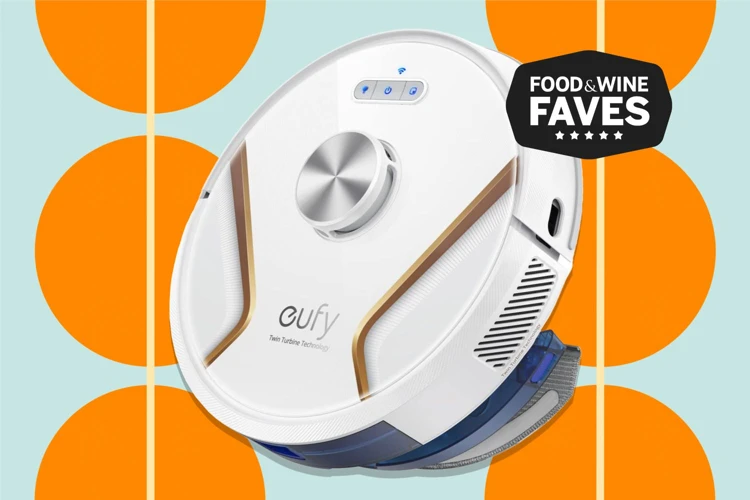
A good filtration system in a smart vacuum cleaner is a must-have feature that can offer numerous benefits for both your family’s health and the cleanliness of your home. Here are some of the key advantages of investing in a smart vacuum cleaner with a high-quality filtration system:
Improvement in Indoor Air Quality
One of the most significant benefits of a good filtration system is that it helps improve indoor air quality by removing dust, dirt, and other contaminants from the air in your home. This is especially important for people who suffer from allergies or asthma, as these conditions can be triggered by airborne particles like pollen, dust mites, and pet dander. If left unchecked, these particles can accumulate in your home and cause respiratory problems for you and your family. A good filtration system can help minimize these risks by trapping and removing these harmful pollutants from the air.
Healthy Cleaning Environment
Another advantage of a high-quality filtration system is that it helps create a healthier cleaning environment for your home. Without a good filtration system, vacuuming can actually increase the amount of dirt and allergens in the air, which can lead to increased dust and asthma symptoms. With a smart vacuum cleaner that has a good filtration system, you can reduce the amount of pollutants in the air during cleaning and promote a healthy indoor environment.
Protection from Allergens
A good filtration system also provides protection from allergens by effectively capturing and trapping these particles before they can be released back into the air. This is especially important for people with allergies or asthma, as exposure to these allergens can trigger an allergic reaction or exacerbate asthma symptoms. By investing in a vacuum cleaner with a high-quality filtration system, you can be sure that you are providing the best possible protection for your family.
Investing in a smart vacuum cleaner with a high-quality filtration system can offer numerous benefits for your home and your family’s health. By improving indoor air quality, providing a healthy cleaning environment, and protecting against allergens, a good filtration system can help you maintain a clean and healthy home for years to come.
Improvement in Indoor Air Quality
One of the major advantages of having a good filtration system in a smart vacuum cleaner is the improvement in indoor air quality. As we all know, indoor air can be more polluted than outdoor air, and vacuuming is an important measure for keeping indoor air clean. A good filtration system traps even the smallest of dust particles, allergens and other pollutants, preventing them from being released back into the air. This means that the air we breathe indoors is much cleaner and healthier.
A smart vacuum cleaner with a good filtration system is especially important for those with respiratory issues, allergies or asthma. These individuals are often very sensitive to the pollutants in the air and require a clean environment to breathe properly. With a high-quality filtration system, the air in your home will be cleaner and fresher, making it easier to breathe, and reducing the likelihood of any negative reactions.
A good filtration system also reduces the spread of diseases and illnesses that may be present in the air. This is particularly important during the cold and flu season, where germs can linger in the air for extended periods of time. With a smart vacuum cleaner that has a good filtration system, these germs will be trapped and won’t circulate through the air in your home.
The improvement in indoor air quality provided by a good filtration system in a smart vacuum cleaner is a major advantage. It means your home will be cleaner, fresher and healthier, providing a positive impact on the overall wellbeing of you and your family.
Healthy Cleaning Environment
When looking for a smart vacuum cleaner, it is essential to choose one with a good filtration system to create a healthy cleaning environment. Investing in a quality filtration system is not just about keeping your home clean but also keeping yourself and your loved ones healthy.
A high-quality filtration system effectively sucks in dirt, dust, and other particles that could induce allergies, asthma, and other respiratory illnesses. It traps these microscopic particles effectively, ensuring that they do not escape back into the environment. This aspect is especially important for those who suffer from allergies or asthma.
A poor filtration system, on the other hand, can stir up dust and allergens, releasing them back into the air even as you clean. This results in poor air quality and can have a severe impact on your health, especially if you inhale the particles into your lungs. This is why it is important to invest in a smart vacuum cleaner with a good filtration system to protect yourself and your family members from allergies and other health issues.
A good filtration system not only removes dust and allergens but also eliminates pet hair, dander, and other pollutants from your home. This ensures that your cleaning environment is as healthy as possible, and the air you breathe is fresh and clean. With the help of a quality filtration system, you can rest assured that your indoor air quality is at its best.
Selecting a smart vacuum cleaner with a quality filtration system is essential for maintaining a healthy cleaning environment. A good filtration system ensures that your home is free from dust, allergens, and other pollutants. It also protects you and your family members from allergies, asthma, and other respiratory illnesses. Investing in a top-quality filtration system is a wise decision for maintaining a healthy and clean environment in your home.
Protection from Allergens
A good filtration system in smart vacuum cleaners offers great protection from allergens that can trigger allergic reactions or asthma attacks. Allergens can be found in dust, pet hair, and pollen, among others, and can cause severe health problems, especially for people who are allergic.
HEPA filters are highly effective in trapping allergens from the air. By using a dense mesh of fibers, they can capture over 99.97% of particles, including small particles as tiny as 0.3 microns. This means that even the tiniest allergens, like pollen, pet dander, and dust mites, can be removed from the air, leaving your home dust and allergen-free.
Smart vacuum cleaners with UV-C light filtration can destroy allergens and other germs, rendering them harmless. UV-C light uses ultraviolet radiation to kill germs by breaking down their DNA, thus inhibiting their ability to multiply and cause harm. This type of filtration is particularly beneficial for individuals with allergies or compromised immunity.
Using multistage filtration systems is yet another way to protect your home from allergens. These systems use several different filters that work together to capture a variety of particles. For example, some systems use a pre-filter to capture larger particles like hair and dust, followed by a HEPA filter to remove smaller allergens like mold spores and pet dander.
In essence, having a strong filtration system in a smart vacuum cleaner can provide a significant level of protection from allergens in your home. This is particularly beneficial for individuals with allergies or asthma, as they are more susceptible to the harmful effects of allergens. By investing in a high-quality smart vacuum cleaner with an efficient filtration system, you can keep your home safe and free of allergens, thus improving the quality of life for you and your loved ones.
Disadvantages of a Poor Filtration System in Smart Vacuum Cleaners
A poor filtration system in a smart vacuum cleaner can have some severe drawbacks. One of the most significant downsides is that it exposes you and your family to dust and allergens. When you use a vacuum cleaner with a low-quality filter, the vacuum’s suction picks up allergens and dust particles from carpets, floors, and furniture. These particles can then be thrown back into the air, worsening indoor air quality and leading to respiratory issues, especially if someone in the household has asthma or allergies.
A poor filtration system can have a significant impact on indoor air quality and health. When dust and allergens circulate in the air, they can cause respiratory issues, such as coughing, sneezing, and headaches. Long-term exposure to poor indoor air quality can even cause health issues like heart disease and lung cancer.
Maintenance of a poor filtration system can also be an issue. Some filters require frequent replacement, or they can clog quickly. Regularly cleaning or replacing filters can be time-consuming and costly, so it’s essential to choose a vacuum cleaner with a reliable and efficient filtration system.
A poor filtration system in a smart vacuum cleaner can expose you to dust and allergens, worsen indoor air quality, and even cause health problems. So, when considering purchasing a smart vacuum cleaner, it’s essential to look for one that has a good filtration system with a high-efficiency filter to protect your health and keep your home clean.
Exposure to Dust and Allergens
When a smart vacuum cleaner has a poor filtration system, it can expose the user to harmful dust and allergens. Dust mites, pollen, pet dander, and other microscopic particles can be stirred up during vacuuming and linger in the air if not captured by the filter. These particles can cause irritation and allergic reactions, especially in individuals with preexisting respiratory conditions like asthma. The effect can be especially pronounced in kids and the elderly, whose immune systems are not as strong.
When vacuuming, the user should be careful not to inhale the dust and allergens as they can cause respiratory issues and other health problems. Using a vacuum cleaner without proper filtration can also lead to a buildup of dust and dirt in the air, making for an unhealthy environment. This poses a significant risk, especially to people who work from home or have young children who may be prone to respiratory issues.
It is vital to invest in a smart vacuum cleaner with a good filtration system that can effectively capture the smallest particles and prevent them from recirculating in the air. This can help keep both the users and their families safe from exposure to harmful dust and allergens.
Poor Air Quality Impacts Health
One of the most significant disadvantages of a poor filtration system in a smart vacuum cleaner is the impact it can have on your health. When a vacuum cleaner has a deficient air filtration system, it leads to poor air quality. Poor air quality can be particularly hazardous for individuals who have respiratory issues such as asthma, bronchitis or allergies.
The absence of an effective filtration system in a vacuum cleaner means that dust, dirt, and other microscopic particles get released back into the air within your living space. Once these particles get inhaled, they could trigger an asthma attack or other allergic reactions, including sneezing, coughing, and wheezing. This can lead to an uncomfortable environment for those suffering from respiratory issues.
Inhaling these particles could also lead to long-term health issues, particularly for children and the elderly. It is essential to recognize that air pollution can cause respiratory problems, as well as cardiovascular disease, and even cancer. The chances of developing these health problems are higher when exposed to poor indoor air quality over prolonged periods.
In addition to respiratory issues, poor air quality can also affect our mental and emotional health. Studies have shown that individuals who breathe poor quality air may experience higher levels of stress, anxiety and even depression.
It is vital to invest in a vacuum cleaner that has an effective air filtration system to avoid such health impacts. A good filtration system will ensure the air in your home is healthy to breathe, free from pollutants, and make your home a healthy environment for everyone.
Maintenance can Get Tricky
One of the disadvantages of a poor filtration system in a smart vacuum cleaner is that maintenance can become quite tricky. All vacuum cleaners need some level of maintenance to keep them functioning optimally, but this is especially true for those with filtration systems.
Without proper maintenance, the filters can become clogged, which reduces the suction power of the vacuum cleaner. Over time, this can lead to the vacuum cleaner becoming less effective at cleaning, which in turn affects the quality of air in your home.
Maintaining a filtration system can be challenging, as different types of filters require different levels of care. Some filters need to be replaced entirely, while others can be cleaned and reused. If you’re not familiar with the type of filter in your vacuum cleaner, it can be difficult to know how best to maintain it.
Moreover, improper maintenance of filters can lead to health hazards. For example, if you don’t replace or clean your filter regularly, it can become a breeding ground for bacteria and mold, which can be harmful to your health.
To avoid these problems, it’s important to choose a smart vacuum cleaner with a filtration system that is easy to maintain. Look for one with clear instructions on how to care for the filters. Some vacuum cleaners may come with a cleaning tool that is specifically designed for the filter, which can make the process much easier.
Regular maintenance of the filters is important to ensure that your vacuum cleaner remains effective in capturing dust and allergens. If you’re not sure how often you should be cleaning or replacing the filter, check the instruction manual or contact the manufacturer for guidance.
While maintenance can get tricky with some filtration systems, it is important to prioritize it as it is crucial to ensure a clean and healthy indoor environment. By choosing a vacuum cleaner with an easy-to-maintain filtration system and regularly cleaning or replacing the filters, you can keep your air clean and your vacuum cleaner functioning optimally.
Conclusion
In conclusion, it is evident that the filtration system plays a crucial role in smart vacuum cleaners. A good filtration system not only improves indoor air quality but also ensures a healthy cleaning environment free from allergens and dust. On the other hand, a poor filtration system can expose individuals to dust and allergens, lower air quality, and lead to complicated maintenance issues.
Therefore, it is vital to select the right filtration system for your smart vacuum cleaner by considering multiple factors like the type of filtration system, the home environment, filtration efficiency, special features, and maintenance requirements. By doing so, you can ensure that your smart vacuum cleaner has a reliable and effective filtration system that meets your needs.
In addition, it is important to keep in mind that a good filtration system is not just a luxury but a necessity, especially for individuals with allergies or respiratory issues. Investing in a high-quality filtration system could make a significant difference in the quality of life for those individuals.
In conclusion, selecting the right filtration system in a smart vacuum cleaner is crucial to ensure a clean and healthy environment. By choosing a high-performing filtration system, you can safeguard your health and that of your loved ones while still enjoying the convenience of smart cleaning technology. So, take the time to research, compare and review different filtration systems to make an informed decision and get the most out of your smart vacuum cleaner.
Frequently Asked Questions
What is a HEPA filter in a smart vacuum cleaner?
A High-Efficiency Particulate Air (HEPA) filter is designed to capture 99.97% of particles as small as 0.3 microns.
How does a cyclonic filtration system work?
A cyclonic filtration system separates dirt and debris by creating a high-velocity suction that spins the air and dust around in a circular motion, causing them to separate and collect in a separate bin.
What is ultraviolet-C light filtration?
Ultraviolet-C light filtration is a process that uses UV-C light to kill bacteria and viruses, making it an effective way to keep your home free of germs and bacteria.
What is a multistage filtration system?
A multistage filtration system is a combination of two or more types of filters or filtration methods, providing advanced filtration efficiency and multiple layers of protection.
How do I know which filtration system is suitable for my home?
To determine which filtration system is right for your home, assess your home environment, consider the filtration efficiency, check for special features, and determine the maintenance requirements.
What is the importance of having a good filtration system?
A good filtration system is essential for maintaining healthy indoor air quality, providing a healthy cleaning environment, and protecting you and your family from allergens and airborne particles.
Can a poor filtration system impact my health?
Yes, a poor filtration system can result in poor air quality, exposure to dust and allergens, and an increased risk of respiratory problems and other health issues.
How often should I clean or replace the filters in my vacuum cleaner?
The frequency of cleaning or replacing filters depends on the type of filter and how often you use your vacuum cleaner. Generally, it’s recommended to replace your filters every 3-6 months.
Can I wash my vacuum filters?
It depends on the type of filter. Some filters are washable, while others are not. Check the manufacturer’s instructions to see if your filters are washable.
What is the benefit of having a smart vacuum cleaner with a good filtration system?
A smart vacuum cleaner with a good filtration system can help you maintain healthy indoor air quality, clean your home more efficiently, and provide peace of mind that your home is free from allergens and other harmful particles.

